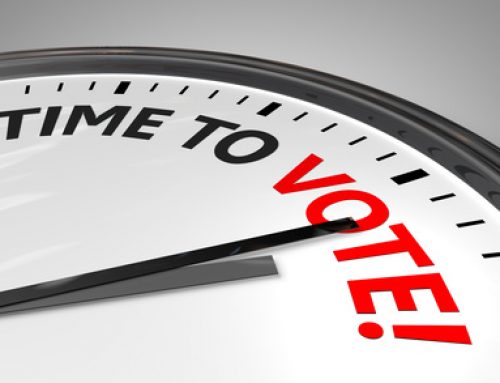She was there again this weekend. She must be in her late 40s, but her hair is neat, and her skin and teeth seem well cared for. She must be new to begging — that seems fairly obvious. Rather than meet the eyes of passing drivers, she keeps hers averted, looking down at the “Homeless, please help” sign she holds in her hands.
In the past eight years, I have driven through the intersection of Parham Road and Patterson Avenue several thousand times. Never before this year have there been panhandlers at that intersection. But they are there now — just as they seem to be at every busy intersection in every city across the United States.

Why are so many Americans standing out in the elements, day after day, hour after hour, walking up and down median strips begging for anything anyone is willing to send their way? The despair and loss of self-pride they exude is palpable.
What is it that makes some presidents successful and others colossal failures? In addition to meeting the basic constitutional requirements of age and birthplace, most Americans would agree that the president must be of strong moral character and that he hold the welfare of this nation above all else.
We should all agree that it is also important that the president have a well-defined vision of the direction he wants to take the nation. He must be able to earn the people’s trust — at least a sizable majority. In short, he must be an exceptional leader.
Some people can do that — and some cannot.
FDR’s fireside chats inspired a weary nation, and yet the fireside chat by a cardigan-wearing Jimmy Carter was a roaring flop. Abraham Lincoln kept the union together by appealing to Americas’ better angels. Gerald Ford convinced us to send him home after two-and-a-half years, but Ronald Reagan handily won re-election because he inspired us to believe in ourselves again.
And now it is time to decide whether President Obama has earned the right to serve another four years in office. He ran on a campaign of promise and hope, of changing America into a thriving, post-racial Nirvana.
Unfortunately, his policies, however well-intentioned, have not worked. One could argue that rather than appealing to the can-do spirit of Americans, he has instead created an atmosphere of entitlement and dependency. The actions and rhetoric of his administration have created a sense of class warfare rarely seen at any other time in this nation.
The president seems disengaged from the day-to-day duties of running a nation. He plays golf and hobnobs with Hollywood celebrities while Americans sit at their kitchen tables deciding which bills must be paid this month and which ones can wait.
He neglects to meet with his jobs council even as unemployment remains above 8 percent for 43 months in a row. As everyone in the country knows by now, 47 percent of Americans pay no federal income taxes and nearly half of us live in households that receive some kind of government assistance check — and an entire army of beggars have taken to the streets in desperation.
Despite promises about a new way of doing things and the use of “smart diplomacy” to reach out to other nations, the ineptitude and disarray of the Obama administration’s entire foreign policy came to a head on the 11th anniversary of America’s darkest day.
On Sept. 11, 2012, in a series of events eerily reminiscent of the 1979 attack on the American embassy in Iran, the U.S. embassy in Cairo, Egypt, and the American consulate in Benghazi, Libya, were attacked. Rabid mobs scaled the walls of the consulate and murdered the American ambassador to Libya, Christopher Stevens.
And on Sept. 14, as the president and the secretary of state solemnly greeted the caskets of the Americans slain in Libya, the Middle East continued to erupt in anti-American violence. Rioting in more than 20 nations ensued. Embassies were attacked and at the U.S. embassy in Tunis, Tunisia, rioters breached the walls, tore down the American flag and flew high the black standard of al-Qaida.
For those of us who have lost family, friends, shipmates or buddies in the 11-year war on terror, the sight of the enemy’s flag flying over U.S. territory was gut-wrenching and sent a symbolic message of failure to the entire world. Osama bin Laden may be dead but al-Qaida certainly seems to be thriving.
Throughout the Middle East, across much of Africa and into the Pacific Rim, the symbolism behind those images of besieged U.S. embassies and burning American flags has only helped bolster a growing impression that the United States is a nation in decline — an impression created by the administration’s reluctance to take a leading role in world affairs.
The world has taken notice. The U.S. is becoming more irrelevant with every passing global crisis. Israel is left in a lurch as the president rebuffs requests for a meeting with the Israeli prime minister. Secretary of State Hillary Clinton has stated that the United States will set no red lines over Iran’s nuclear program.
In a recent statement to reporters in London that was never rebuffed by the White House, Joint Chiefs of Staff chairman Gen. Martin Dempsey announced that he doesn’t “want to be complicit in an Israeli attack on Iran.” (That may be because the generalissimo is too busy breaching the military/civilian divide by taking it upon himself to call Florida pastor Terry Jones to “suggest” the extremist reverend withdraw his support for the ridiculous film that the White House claims sparked the entire Middle East debacle.)
When asked recently at a press conference what the U.S.’s role might be in the growing crisis, Chinese Foreign Ministry spokesman Hong Lei replied bluntly, “We have noted that the United States has stated many times that it does not take sides. We hope that the United States will abide by its promises and do more that is beneficial to regional peace and stability, and not the opposite.”
President Obama is a charismatic and outgoing man. He is strikingly handsome and certainly looks presidential — but that does not make him a good president. At home and abroad, the consistent misses and failures of his administration have left the United States in a far more precarious place than we were four years ago.
The world is a dangerous place and perilous times lie ahead. The economy shows alarming signs of slipping back into recession. Looming sequestration cuts threaten to wreck havoc both domestically and militarily.
Obama recently called himself a “tested and proven” leader. That may be. All presidents are tested on foreign policy — and some have proven to be failures.
Robin Beres, Richmond Times-Dispatch
mb****@***********ch.com (804) 649-6305
Click here to see this on Richmond Times-Dispatch website






